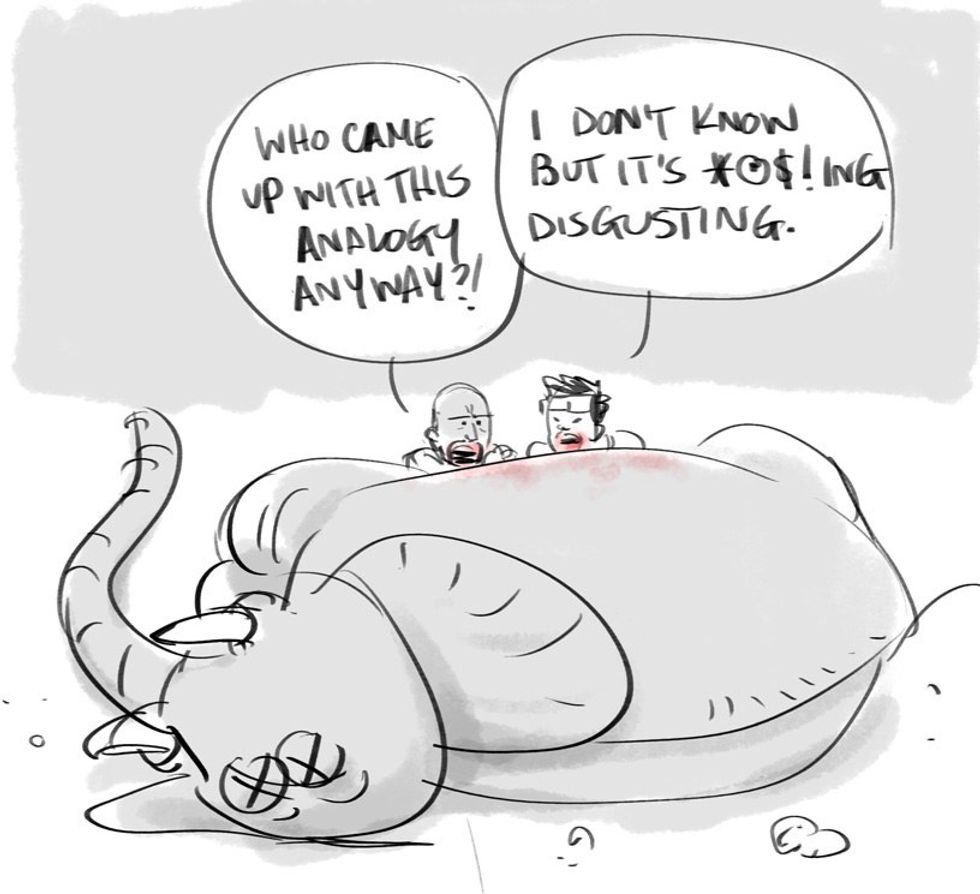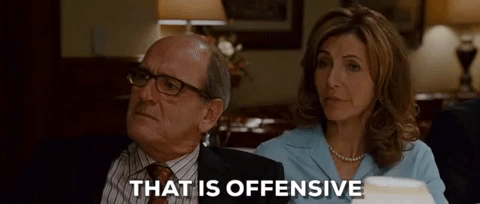Think back to the last time you said the acronym “YOLO” or the phrase “on fleek.” Those slang words have almost certainly been substituted by more up-to-date sayings like “mad lit” and “fam,” right? Over the past two or three decades, however, what words haven’t changed all that much? Profanity. We’ve all dropped the F-bomb by ourselves, in front of our peers, and even in front of our parents, teachers and probably small children (so you didn’t know they were there, it’s fine). Why is it that we often compare an individual’s use of profanity to that of a truck driver or a sailor (stereotypically masculine figures in other words)? Maybe because “Real ladies don’t talk like that,” but yet it is almost expected of men to “talk like that.” As a feminist, whenever I hear that, my response involves the proper return level of sass, occasionally saying, “you must not have realized I’m a New Yorker then.”
Let’s talk about the F-word for a moment. Feminism (don’t worry, I’ll get to the other one later). What is it? It’s the movement that embraces the idea that women and men are equal. It's the idea that a woman can fight for the check and pay for the man sometimes too or that a woman can hold the door open for a man. It's the idea that a man cannot physically assault a woman and vice versa. There are a few misconceptions perceived by many individuals regarding what it means to be a feminist and I want to start by crushing some of these myths. Firstly, feminism is NOT the belief that one sex is superior to the other, but rather it is a political and social movement towards the goal of equality between the two sexes. The second misconception is the notion that you must identify as a female to be a feminist when in fact the movement is more empowered by masculine figures and requires capturing the attention of the male audience. There is also a third misconception that all feminists identify as homosexual or that they should be referred to as “bra burners” and “men haters.” For those of you not caught up on this particular history lesson yet, there have been three waves of feminism: initiation of women’s suffrage, ending gender discrimination, and the fight for reproductive health rights and the closure of the wage gap, respectively. My focus is on the the social expectations of language usage between men and women.
Why mention feminism? Simple. It’s crucial to understanding the argument that freedom of speech applies to everyone, regardless of gender, gender identity, gender role, or sexual orientation. It’s also crucial to understanding that you can’t half-ass feminism, meaning feminism is more than just closing the wage gap between men and women. Consider this for a moment: why is it in a workplace full of men, it is expected of men to talk about sports and women all while swearing in every other sentence or word to keep this facade of the "manly man." What happens when a woman enters this “Man cave” domain? Often the profanity ceases, thinking it is out of respect for the women present in the room. I understand the good intent behind this, but I have to disagree with the reasoning in order to play devil’s advocate.
In a professional environment, every employee should implicitly uphold that professional disposition, but we know this isn’t always the case in every single environment. In other words, if a certain level of profanity is tolerable in a more casual environment, it shouldn’t be deemed “unladylike” for a woman to meet men at that level of profanity. Not all women may feel comfortable with profanity in general, which is a portion of the problem, but suffice it to say the expectation gap between men and women needs to close in addition to the wage gap mentioned earlier. Now it’s imperative I emphasize I’m not blaming just men here, I’m blaming the women too (otherwise what kind of feminist would I be?) as I said a collaborative effort needs to be made from all of us.
Admittedly, I love swearing. Ironically, I love the way it surprises people, though that isn’t my primary motive. Are others surprised because someone as educated and bright as I shouldn’t be categorized with the “lowly” individuals with no filter? The way a woman is looked upon is the first perspective to change when the F-bomb drops. Of course, there is a time and place for everything, so I’m making the assumption that in a given time and place, why is it still frowned upon? Swearing doesn’t discredit my accomplishments or minimize the value of my college-level education. It doesn’t alter or shift my identity as a female nor does it personify my sexual orientation. Words don’t have meaning unless you give it that power and words will continue to be redefined and misinterpreted until the end of time. The saying, “You will forget what a person said, but you will never forget how a person made you feel” holds true. You’ll forget why I dropped the F-bomb, but you won’t forget how surprised you were to hear a woman say it.



 Photo by
Photo by  Photo by
Photo by 
 Photo by
Photo by 






















